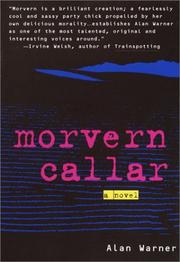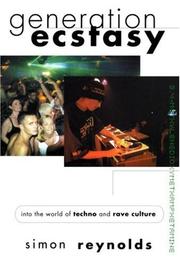| Listing 1 - 8 of 8 |
Sort by
|
Book
ISBN: 2810710376 2810701202 Year: 2019 Publisher: Toulouse : Presses universitaires du Midi,
Abstract | Keywords | Export | Availability | Bookmark
 Loading...
Loading...Choose an application
- Reference Manager
- EndNote
- RefWorks (Direct export to RefWorks)
En France, les rave-parties - ces fêtes techno souvent clandestines qui ont défrayé la chronique au long des années 2000 - sont dans le collimateur des autorités. De fait, si les raves ont longtemps constitué un espace de liberté, les institutions ont vite tenté de les réprimer et/ou de les encadrer, et plutôt avec succès. Cette musique et ces regroupements a priori apolitiques ont été considérés essentiellement sous l’angle de l’ordre public ; autrement dit, les fêtes techno « non commerciales », qui auraient pu relever des compétences du ministère de la Culture, sont aujourd’hui principalement gérées par le ministère de l’Intérieur. Pourtant, les conflits de normes demeurent nombreux parmi les acteurs publics qui encadrent les raves. Ils hésitent entre une gestion policière et une gestion sanitaire de ces manifestations avant tout festives, mais où la présence de drogues constitue un élément de cristallisation des inquiétudes. Tout l’enjeu de cet ouvrage, tiré d’une enquête de terrain, est de comprendre les mécanismes de transformation de la fête techno en problème public et d’en analyser la gestion par les autorités politiques.
Raves (Parties) --- Rave culture --- Political aspects --- Social aspects --- History. --- Sociology of rave-parties --- France --- Acid House culture --- Subculture --- Rave-ups (Parties) --- Parties

ISBN: 038548741X Year: 1998 Publisher: Nîmes Jacqueline Chambon
Abstract | Keywords | Export | Availability | Bookmark
 Loading...
Loading...Choose an application
- Reference Manager
- EndNote
- RefWorks (Direct export to RefWorks)
Rave culture --- Scots --- Young women --- Fiction. --- Acid House culture --- Subculture --- Scotch --- Scottish people --- British --- Ethnology --- Fiction --- Europe --- Scotland --- 870 --- proza --- prose

ISBN: 0415923735 9780415923736 9780203824962 9781136783173 9781136783128 9781136783166 9781138135352 Year: 1999 Publisher: New York : Routledge,
Abstract | Keywords | Export | Availability | Bookmark
 Loading...
Loading...Choose an application
- Reference Manager
- EndNote
- RefWorks (Direct export to RefWorks)
Techno (musique) --- Rave-parties --- Techno music --- Rave culture. --- Histoire et critique --- History and criticism. --- Rave culture --- -#SBIB:309H142 --- #SBIB:309H040 --- #SBIB:AANKOOP --- Detroit techno (Music) --- Electronic dance music --- Acid House culture --- Subculture --- History and criticism --- Populaire muziek: functies, muziekgenres, historiek --- Populaire cultuur algemeen --- #SBIB:309H142 --- Rave-parties. --- Histoire et critique.
Book
ISBN: 1526154366 9781526154361 1526142759 9781526142757 1526142767 Year: 2019 Publisher: Manchester
Abstract | Keywords | Export | Availability | Bookmark
 Loading...
Loading...Choose an application
- Reference Manager
- EndNote
- RefWorks (Direct export to RefWorks)
Madchester may have been born at the Hacienda in the summer of 1988, but the city had been in creative ferment for almost a decade prior to the rise of acid house. The end-of-the-century party is the definitive account of a generational shift in popular music and youth culture, what it meant and what it led to. First published right after the Second Summer of Love, it tells the story of the transition from new pop to the political pop of the mid-1980s and its deviant offspring, post-political pop. Resisting contemporary proclamations about the end of youth culture and the rise of a new, right-leaning conformism, the book draws on interviews with DJs, record company bosses, musicians, producers and fans to outline a clear transition in pop thinking, a move from an obsession with style, packaging and synthetic sounds to content, socially conscious lyrics and a new authenticity. This edition is framed by a prologue by Tara Brabazon, asking how we can reclaim the spirit, energy and authenticity of Madchester for a post-youth, post-pop generation. It is illustrated with iconic photographs by Kevin Cummins. --.
Popular music --- Music, Popular --- Music, Popular (Songs, etc.) --- Pop music --- Popular songs --- Popular vocal music --- Songs, Popular --- Vocal music, Popular --- Music --- Cover versions --- History and criticism. --- Social aspects. --- 1980s. --- Acid House. --- Cultural Studies. --- Haçienda. --- Jean Baudrillard. --- Madchester. --- Manchester. --- Pop music. --- Post-pop. --- Youth culture.
Book

ISBN: 9781845455460 1845455460 9781845536251 1845536258 9781845536268 1845536266 9781845538668 1845538668 9781845457716 1845457714 9781845457716 0857459252 Year: 2011 Publisher: New York Oxford
Abstract | Keywords | Export | Availability | Bookmark
 Loading...
Loading...Choose an application
- Reference Manager
- EndNote
- RefWorks (Direct export to RefWorks)
While social scientists, beginning with Weber, envisioned a secularized world, religion today is forthrightly becoming a defining feature of life all around the globe. The complex connections between religion and politics, and the ways in which globalization shapes these processes, are central themes explored in this volume by leading scholars in the field of religion. Does the holism of numerous past and present day cosmologies mean that religions with their holistic orientations are integral to human existence? What happens when political ideologies and projects are framed as transcendent
Counterculture. --- Rave culture. --- Techno music --- Youth --- History and criticism. --- Social aspects. --- Attitudes. --- #SBIB:39A5 --- #SBIB:309H142 --- Detroit techno (Music) --- Acid House culture --- Counter culture --- Countercultures --- Kunst, habitat, materiële cultuur en ontspanning --- Populaire muziek: functies, muziekgenres, historiek --- Counterculture --- Rave culture --- Electronic dance music --- Subculture --- Culture --- Hippies --- History and criticism --- Social aspects --- Attitudes --- Anthropology of religion. --- Religion and culture. --- Politics and culture. --- Culture and globalization. --- Globalization and culture --- Globalization --- Culture and politics --- Culture and religion --- Religious anthropology --- Ethnology --- Political aspects
Book
ISBN: 9781910433874 191043387X Year: 2016 Publisher: London Black Dog Publishing
Abstract | Keywords | Export | Availability | Bookmark
 Loading...
Loading...Choose an application
- Reference Manager
- EndNote
- RefWorks (Direct export to RefWorks)
Music --- Sociology of culture --- electronic music --- art [fine art] --- Art --- popular culture --- anno 1980-1989 --- anno 1990-1999 --- kunst --- muziek --- kunst en muziek --- 7.038 --- Eshun Kodwo --- Stokes Matt --- Shutov Sergey --- Pflumm Daniel --- The Otolith Group --- Voigt Wolfgang --- Leckey Mark --- Kersels Martin --- Janssens Ann Veronica --- Plenge Jakobsen Henrik --- Halter Dan --- Van Beirendonck Walter --- Gursky Andreas --- Domanovic Aleksandra --- Dijkstra Rineke --- Denicolai & Provoost --- Deller Jeremy --- Vandepapeliere Renaat --- Cornelis Jef --- Barber George --- Arcangel Cory --- de Andrés Irene --- André Jacques --- kunst en politiek --- jungle --- hardcore --- acid house --- techno --- nineties --- eighties --- twintigste eeuw --- rave --- Exhibitions --- art [discipline] --- muziekgeschiedenis

ISBN: 1856284654 9781856284653 Year: 1993 Volume: 1 Publisher: Aldershot Avebury
Abstract | Keywords | Export | Availability | Bookmark
 Loading...
Loading...Choose an application
- Reference Manager
- EndNote
- RefWorks (Direct export to RefWorks)
Youth --- Rave culture --- Popular music --- Ecstasy (Drug) --- History and criticism. --- 316.728.1 --- #SBIB:309H040 --- #SBIB:316.7C131 --- 343.971.1 --- Popculture. Popular culture. Volkscultuur. --- Populaire cultuur algemeen --- Cultuursociologie: jeugdcultuur --- Hooliganisme. Voetbalvandalisme. jeugdcultuur en criminaliteit--(criminaliteit en subcultuur) --- 343.971.1 Hooliganisme. Voetbalvandalisme. jeugdcultuur en criminaliteit--(criminaliteit en subcultuur) --- 316.728.1 Popculture. Popular culture. Volkscultuur. --- Music, Popular --- Music, Popular (Songs, etc.) --- Pop music --- Popular songs --- Popular vocal music --- Songs, Popular --- Vocal music, Popular --- Music --- Cover versions --- MDA (Drug) --- MDMA (Drug) --- Methylenedioxymethamphetamine --- Hallucinogenic drugs --- Methamphetamine --- Acid House culture --- Subculture --- History and criticism --- Popculture. Popular culture. Volkscultuur --- Youth - Great Britain. --- Rave culture - Great Britain. --- Popular music - Great Britain - History and criticism.
Book
ISBN: 1282772635 9786612772634 052094464X 9780520944640 9781282772632 9780520267879 0520267877 9780520252554 0520252551 Year: 2009 Publisher: Berkeley University of California Press
Abstract | Keywords | Export | Availability | Bookmark
 Loading...
Loading...Choose an application
- Reference Manager
- EndNote
- RefWorks (Direct export to RefWorks)
In a tour de force of lyrical theory, Joshua Clover boldly reimagines how we understand both pop music and its social context in a vibrant exploration of a year famously described as "the end of history." Amid the historic overturnings of 1989, including the fall of the Berlin Wall, pop music also experienced striking changes. Vividly conjuring cultural sensations and events, Clover tracks the emergence of seemingly disconnected phenomena--from grunge to acid house to gangsta rap--asking if "perhaps pop had been biding its time until 1989 came along to make sense of its sensibility." His analysis deftly moves among varied artists and genres including Public Enemy, N.W.A., Dr. Dre, De La Soul, The KLF, Nine Inch Nails, Nirvana, U2, Jesus Jones, the Scorpions, George Michael, Madonna, Roxette, and others. This elegantly written work, deliberately mirroring history as dialectical and ongoing, summons forth a new understanding of how "history had come out to meet pop as something more than a fairytale, or something less. A truth, a way of being."
Popular music --- Rap (Music) --- Underground dance music --- Grunge music --- Nineteen eighty-nine, A.D. --- 1989 A.D. --- Nineteen hundred eighty-nine, A.D. --- Year nineteen eighty-nine, A.D. --- Nineteen eighties --- Grunge rock music --- Alternative rock music --- Club music --- Dance music, Electronic --- Dance music, Underground --- EDM (Electronic dance music) --- Electronic music (Electronic dance music) --- UDM (Underground dance music) --- Dance music --- Electronica (Music) --- Remixes --- Music, Popular --- Music, Popular (Songs, etc.) --- Pop music --- Popular songs --- Popular vocal music --- Songs, Popular --- Vocal music, Popular --- Music --- Cover versions --- History and criticism. --- acid house. --- bands. --- cultural studies. --- de la soul. --- dr dre. --- entertainment industry. --- fall of the berlin wall. --- gangsta rap. --- george micheal. --- grunge music. --- historical. --- history. --- jesus jones. --- lyrical theory. --- madonna. --- media studies. --- music studies. --- music. --- musicians. --- nine inch nails. --- nirvana. --- nwa. --- performing arts. --- political aesthetics. --- politics. --- pop music. --- popular music. --- public enemy. --- rap music. --- retrospective. --- roxette. --- singers. --- social context. --- the end of history. --- the klf. --- the scorpions. --- u2.
| Listing 1 - 8 of 8 |
Sort by
|

 Search
Search Feedback
Feedback About UniCat
About UniCat  Help
Help News
News